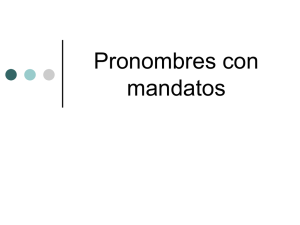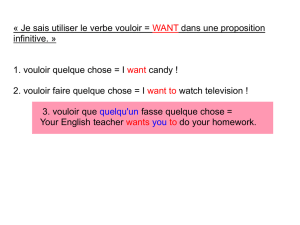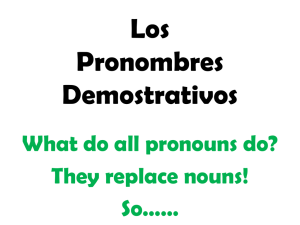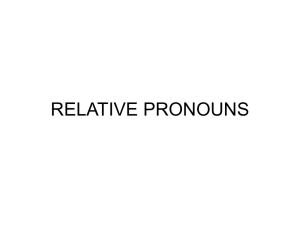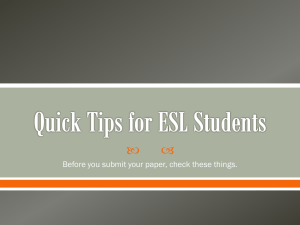Unidad 3 Lección 1: Pronouns After Prepositions
advertisement
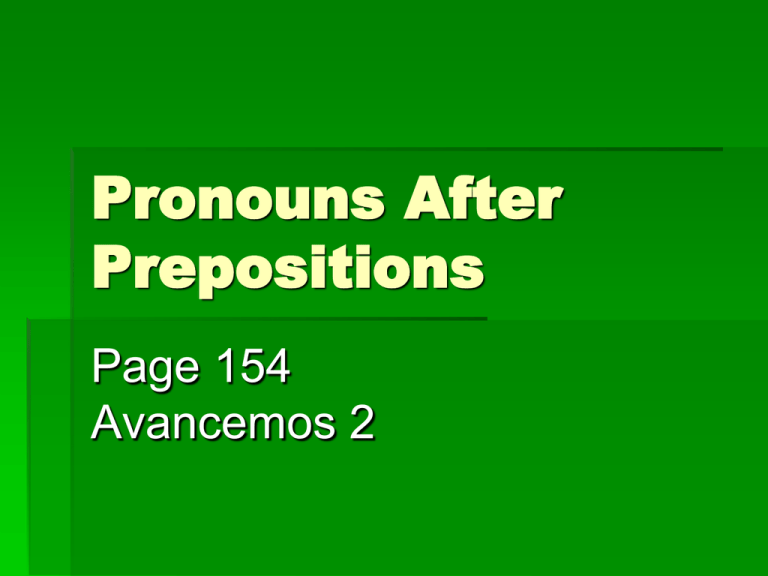
Pronouns After Prepositions Page 154 Avancemos 2 Pronouns After Prepositions In English, prepositions (for, from, to, and with) sometimes link pronouns to another word in a sentence. Pronouns After Prepositions Some of the pronouns that follow prepositions are different from the subject pronouns. I have a gift. The gift is for me. Pronouns After Prepositions Spanish: Yo tengo un regalo. El regalo es para mí. Pronouns After Prepositions Pronouns that follow prepositions are different from subject pronouns and object pronouns. Use these pronouns after prepositions like para, de, a, and con. Pronouns After Prepositions Common prepositions: Para – for De – of, from A – to, at (or personal “a”) Con - with Pronouns After Prepositions para mí para nosotros para nosotras para ti para él, ella, Ud. para ellos, ellas, Uds. Pronouns After Prepositions Notice that these pronouns are the same as the subject pronouns in all forms except mí (yo) and ti (tú): Pronouns After Prepositions Clara vive lejos de nosotros. Clara lives far from us. Tengo un regalo para ti. I have a gift for you. Pronouns After Prepositions With verbs like gustar, use pronouns after the preposition “a” to add emphasis. A mí no me gusta la ropa de cuadros. I really don´t like plaid clothes. Pronouns After Prepositions Uncertain: Le gusta ir a la librería. It pleases him/her/you to go to the bookstore. Pronouns After Prepositions Certain: A él le gusta ir a la librería. It pleases him to go to the bookstore. Pronouns After Prepositions When you want to say “with me” and “with you,” the preposition “con” is irregular: conmigo – with me contigo – with you (the other forms of “con” are regular.) Pronouns After Prepositions ¿Vas a la fiesta conmigo o con Jorge? Are you going to the party with me or with Jorge? Pronouns After Prepositions No voy con él; voy contigo. I´m not going with him; I´m going with you.


